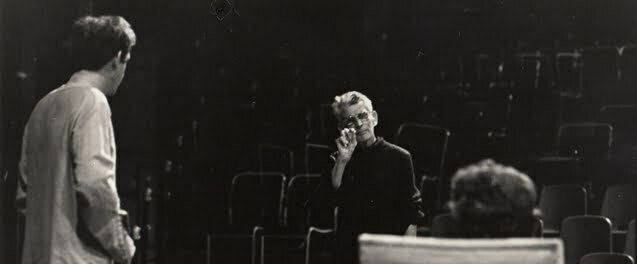
Samuel Beckett’s cricket success
On this day in 1906 the poet and playwright Samuel Beckett was born.
Beckett was a surprisingly good cricketer who earned himself an entry in Wisden, the cricket lovers’ bible – the only Nobel Laureate to do so.
In his forties he realised that he wants to concentrate on minimalism; his most famous play ‘Waiting for Godot’ which appeared in 1953 certainly followed this idea. The critic Vivian Mercier wrote that he “has achieved a theoretical impossibility—a play in which nothing happens, that yet keeps audiences glued to their seats.”
Beckett was very well educated and was influenced by Greek tragedy (where much happens); it was the simple structure that he liked. Here is a taste, in Sophocles’ play, Oedipus Rex:
Oedipus: My poor children!I know you well and I know well your pain.
I know very well that you are all gripped by despair.
Yet no one is in greater pain than I am because your pain affects only you, each one of you, alone, whereas I ache for the whole city and for all of you. So have no fear, I’m not asleep. I am wide awake to your misfortune. My soul cries for us all.
I have lost many tears and have travelled many paths of thought to find a way out of this until, finally, I have decided to put into action the only possible solution that came to my mind:
I have sent Creon, my wife’s brother, Menoikeos’ son, to Apollo’s oracle to ask what we should do to save our city; to find out what deed or what word should we do or say to save our country.
In fact, Creon should have returned by now and I’m beginning to worry. Let him come and tell us what needs to be done.
Then I would indeed be a terrible man if I did not do all that the god asks!” (They all look into the distance and see Creon approaching.)
Did waiting for Creon inspire “Waiting for Godot?”
Today I will remember the benefits of minimalism although I will be careful not to miss the important things in life
